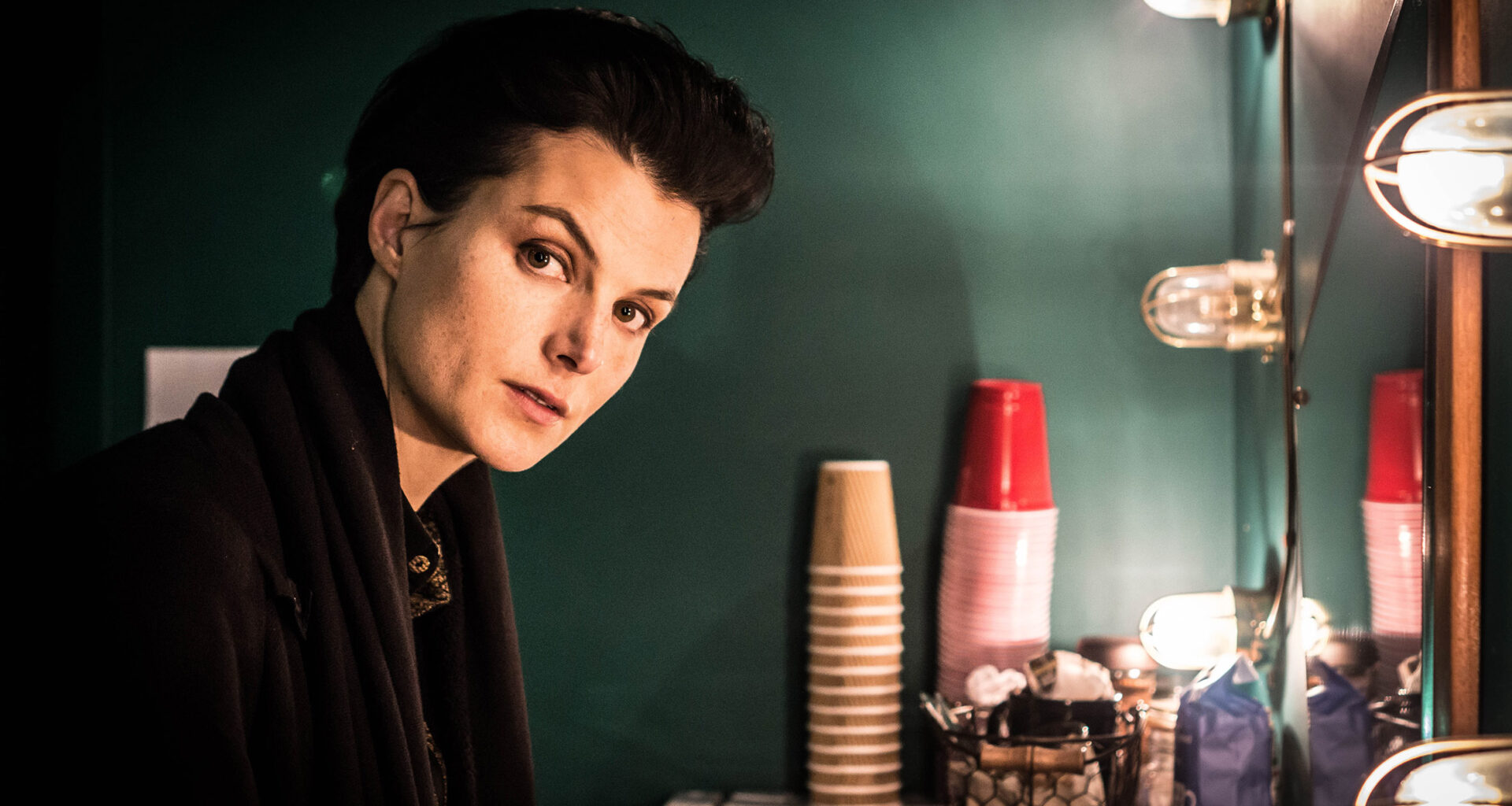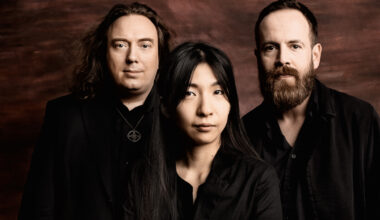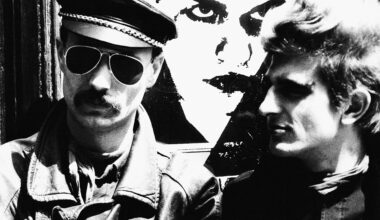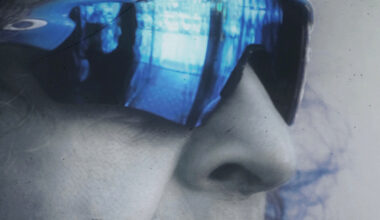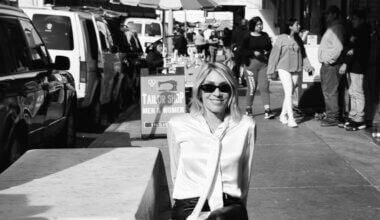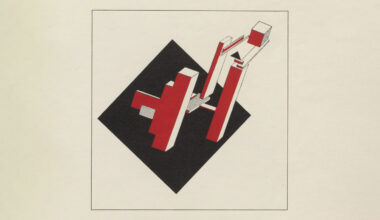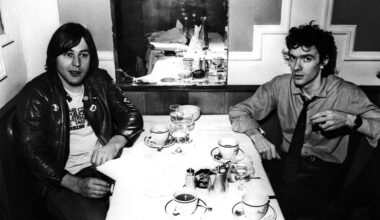Electronic artists sometimes struggle to make their music work in a live setting. But not much-lauded electro-popster Karin Park, as our behind-the-scenes peek at the London show on her recent UK tour proves
Situated within touching distance of Hackney Central station, Oslo is a bar that, as you might have guessed, very much draws on a Nordic aesthetic. An intimate club, it is a fitting venue for Swedish-Norwegian electro-pop artist Karin Park to play on her brief UK tour. To make her feel more at home, the menu even features Norwegian delicacies such as the classily named “Oslo Spud”. Or “potato” to you and me.
Karin Park has been a recording artist for over a decade now, and her experience has enabled her to hone and perfect a distinctive sound. Her latest album, ‘Apocalypse Pop’, combines the choral euphoria of fellow Norwegians a-ha with the impervious electronica of post-1983 Depeche Mode. It could end up being the electro-pop album of the year.
The title of the album itself clearly carries a sense of caustic resonance. This is matched on a philosophical level by Karin’s desire to dissect and consider what electronic pop music has become.
“When I listen to songs by Rihanna or Justin Bieber [Karin once covered a Bieber track], I think that a lot of times there is a story but it kind of gets lost in the claws of pop culture. I like records by people like Depeche Mode, The Cure and Fad Gadget, people who write songs in a more traditional way, but I also listen to a lot of instrumental music, such as Einstürzende Neubauten, Factory Floor and Throbbing Gristle, and that sort of stuff is not song structured at all.”
While Karin rails against a modern pop culture forever edging towards bland uniformity, she is happy to manoeuvre within its generic confines – even if “pop” has almost become a dirty word.
“I feel like I definitely have that pop element in my songwriting because I write pop melodies, but at the same time I’m against pop culture. It’s funny because you are a bit allergic to the phrase ‘pop music’ in the UK. It’s not the same as in the rest of Europe. I think you should reclaim the phrase.”
The Oslo soundcheck begins and Karin Park – vertically-styled coal-black hair, long black shirt, purple leggings, Doc Martens – is the picture of calm. To her left, she is flanked by new band member Juno on keyboards. To her right is the drummer, her brother David Park. With his shoulder-length blonde mane and Slayer T-shirt, David doesn’t entirely look like he should be in an electronic band. Still, touring with a sibling must provide a certain feeling of security?
“Yes, definitely,” says Karin. “This is the end of the tour now. We’ve been on the road for a month and I’ve been home so little that there’s been a lot of pressure. When it’s a bit rough and I’m really tired, it’s good to have David around.”
It’s been an exhausting period away from her homeland, during which she has travelled the length and breadth of Europe. So is all the touring worthwhile?
“I love to sing first of all. I’ve been singing since I was two years old and every time I sing I feel like it’s the best thing in the world. I’m in my element when I’m on the stage and I feel that I’ve become what I’m supposed to be. I don’t think everyone gets to have that feeling, but equally I don’t like that so much time is spent travelling and your life is on hold. I also need to be on my own sometimes. When I get home, I’m going to lock myself in my house for a week and not talk to anyone.”
YouTube channel SBTV have come along to tonight’s gig to film two songs. The crew have approximately one hour to record the footage before support acts Glass and La Shark begin to load their gear. Karin, however, has had little time to rustle up a suitable cover version that is fit for live performance.
“I wish I could be in the audience tonight,” she exclaims, smiling in the direction of the venue’s loftily placed sound engineers. “Because we are on tour, we go to bed really late and get up really early, so we had to rehearse the cover in the car. We even did it in the Eurotunnel. It’s good that I have my Korg keytar, you know? It’s very handy and I always keep it with me.”
So Karin sits on a stool front of stage with her keytar on her lap, surrounded by cameras. Backlights emitting purple rotating rings swivel in her direction, casting bright beams on her face from either side. A smoky hue drifts from the background, shrouding her image as she imparts a soft yet deliciously accented vocal.
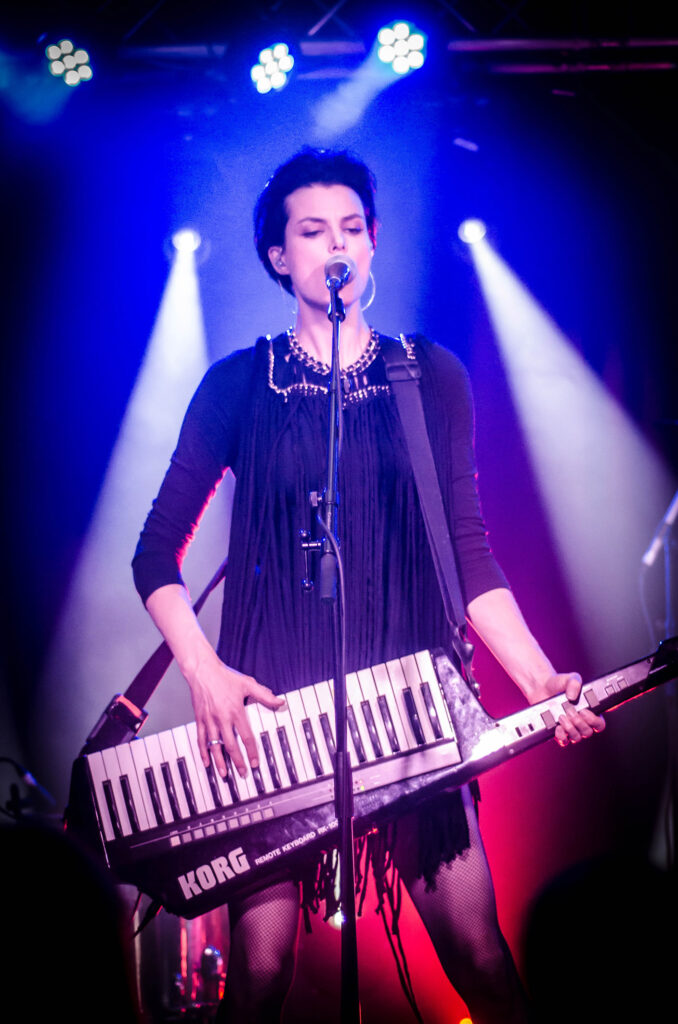
She knows exactly how she wants to be presented and eagerly checks the video crew’s filmed footage, but only a few takes are required to perfect a version of ‘Earned It’ rehearsed in transit over a period of 48 hours. The second track, ‘Look What You’ve Done’, is from ‘Apocalypse Pop’ and is far more uptempo, offering a brief glimpse of this evening’s live set. Interestingly, as we approach showtime, Karin does not seem to feel the nerves that many other artists do.
“I used to get really nervous before every gig, but I’m not anymore because I always know it’s going to be a good show. It doesn’t have anything to do with the fact that I know I can sing, it’s more that I know I am making music that’s true to myself. If there’s only one person in the audience – or just a dog – I know I would do the same thing.”
Karin’s often restrained exterior melts when she starts talking about what she loves doing most – performing. But it’s her sensitive side that shines through when she discusses ‘Human Beings’, a song about her boyfriend, who is currently in remission following cancer treatment. Is it difficult to get up on stage and sing songs that are so intensely personal?
“I didn’t think it would be but yes, it is, and sometimes I don’t want to do that because I feel too vulnerable. For me, it’s important to be a strong figure with my image and my attitude, but ultimately it’s my emotions that make me a good songwriter. I don’t see anything wrong with showing that, even though it can be a bit painful sometimes.”
Just prior to going on stage, Karin cracks her head on the corner of a speaker. A small bump develops and there’s a cut which starts to bleed. Somebody gets an ice-pack from somewhere, but the horn she jokes will soon appear at the side of her head fails to materialise.
Meanwhile, the club has filled up and an enthusiastic crowd welcomes the band to the stage. Karin prowls the boards, her icy glare raking the faces at the front before she leaps into ‘Restless’. Her vocal scythes through the track, powered by her brother’s tribal drumming and the earthy sound of Juno’s gritty, syncopated synths.
Karin sweeps through the hour-long set with authority and control, the band transmitting a visceral energy that other electronic acts might struggle to emulate. This is especially apparent when Karin takes hold of her Korg MS-20 during the track ‘Fryngies’, letting loose screeching analogue synth tones.
“I will gladly impress people and once they are at the show I know exactly what to do to get them involved,” a confident Karin Park had barked earlier in the day. She’s not wrong. She captures the audience with her beautifully sung ballads and performs a mix of mostly upbeat tracks with immense power while commanding the space effortlessly.
As the show reaches its climax, she introduces ‘Human Beings’. Alluding to our conversation about the song before going onstage, her voice falters slightly as she briefly describes the difficulty in bearing her soul in surroundings now separated from the harsh realities of life. Such a display of emotion only endears her further to an already enraptured audience.
Karin Park On Female Electronic Artists
“Ten years ago, the climate was completely different for female artists. You were supposed to be the front girl in the band and you weren’t supposed to do much. Now you’re allowed to be older in the music business and because that is more common, you’re able to get more experience.
“Traditional instruments were made by men. I’ve been playing the guitar for 15 years and every time I grab a guitar I’m wondering what the fuck I’m doing. But when you’re in a music programme, it’s easier to create whatever world you want on your own terms.
“Men have always been able to nerd in on one thing for 10 hours a day. Even if you don’t have kids, the female way of thinking is more collective. But women are starting to think differently now and men are thinking more responsibly, so it’s possible for me to sit in my studio for eight hours and be confident that my future husband is capable of making himself some lunch without me having to come down and do it for him.”
Weapons Of The Apocalypse: Karin Park’s Equipment
“We have a lot of technology on stage, but we don’t use a backing track. Most of what we do we play live. Sometimes something crashes and doesn’t work, but we can normally improvise.”
Karin herself uses a Korg MS-20 mini monophonic analogue synth and a very 80s-looking RK-100S keytar, enabling her to play keyboards guitar-style while she sings. The synth section is supplemented by Juno’s Alesis Q49 keyboard controller, which triggers sounds from a laptop hosting Apple MainStage. Her keyboard rig also features a striking red Nord Stage 2 synth.
David Park is meanwhile not only the drummer but also the bass player, cueing bass rhythms using organ pedals linked to Arturia software, which has emulations of classic Moog, Jupiter 8 and Yamaha CS-80 synth sounds. In between his drums rests a Roland SPD-S sampling pad and a controller is strapped to his leg to adjust sound filters in real time. During studio recordings, Karin say she very much has her live set-up in mind.
“When I’m recording, I don’t make it too complicated. I think about replicating the songs live, so I use very little auto-tune and I don’t like to do multiple vocal layers. It’s not that the live show is trying to replicate the album, but more like the album is replicating the live show.”
